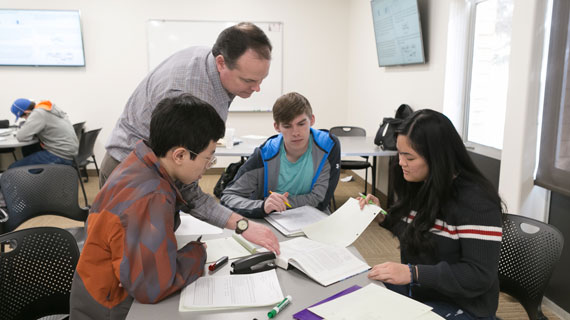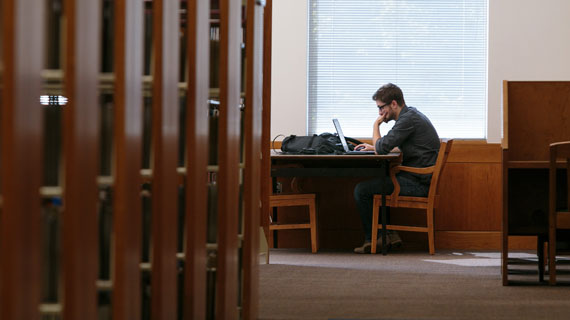Make the Most Out of Your College Classroom Experience
Posted: June 24, 2017 | Author: Abigail Wyatt | Read Time: 3 minutes
 College can be stressful, especially when your to-do list fills with tasks like writing essays, studying for exams, working on group projects, and all the other exciting adult things you have to get done. Whether you’re starting your first semester, or you’re an experienced junior or senior, college classes can feel intimidating.
College can be stressful, especially when your to-do list fills with tasks like writing essays, studying for exams, working on group projects, and all the other exciting adult things you have to get done. Whether you’re starting your first semester, or you’re an experienced junior or senior, college classes can feel intimidating.
What if there were a secret to succeed in every class - a secret that works even for classes like calculus and human biology?
Eric Kirby, executive director of completion and student success at Southern Utah University, leads campus retention, completion and student success initiatives. Working one-on-one with hundreds of students he’s learned what works and what doesn’t work for college class survival. The secret to student success, according to Kirby, is preparation. Be prepared for every class, every day, he suggests.
Here are 11 tips from Kirby to help you prepare and make the most of your classroom experience:
Review your syllabi. Each night, review upcoming deadlines and what will be covered the next day in class. This will keep you from being surprised by an assignment or quiz you forgot or didn’t know about.
Stay on top of reading. You don’t have to read it word for word, but be familiar with the main terms, concepts and ideas of assigned readings. It’s easier to read a chapter a day than cram the entire book right before an exam. Also, reading will help you understand what’s being covered in class and allow you to make meaningful contributions to the discussion.
Go to every class. Being in class and staying focused can greatly decrease the amount of required study outside of class. Find a seat at the front of the room to help you stay focused and not get distracted. Put away or turn off distractions such as electronics and phones.
Get a study buddy. Exchange phone numbers or email addresses with this person in the class so you can arrange to receive information if you are sick or need to be absent. You can also compare notes and study together for exams.
Speak up. It’s important to ask questions. Professors are there to help and appreciate class engagement and participation. If there isn’t time for your question in class, send your professor an email or schedule a visit during office hours.
Take good notes. Don’t worry about writing down every detail, but make sure you capture main concepts in your notes. Take 15 minutes after every class to review and reorganize your notes. Use the textbook or your study buddy to help fill in any missing material. To increase retention, review your notes within 24 hours of the class.
Study in advance.Think in terms of basketball. Teams do not wait until the night before a big game to being practicing and preparing. Pace your studies to avoid staying up all night cramming before a big test.
Use university resources. Find campus resources that can support you in each of your courses at the beginning of the semester such as tutoring centers or office hours.
Bring snacks. Keep a stash of healthy snacks in your backpack. Foods such as nuts, granola bars and fruits are packed with energy and can help carry you through your day.
Use a planner. Write down important due dates and assignments and check your planner daily. This practice will help you stay on track and give you an extra sense of accomplishment as you physically check off the items on your to-do list.
Be on time. Find out where your classrooms are before the first day of the semester. Locate routes to your classrooms and be conscious of how much time it takes to go from one place to another so you arrive on time.
Set up an appointment with a Student Success Advisor today for more tips about your specific classes and for personalized advice. You can make an appointment online or use walk-in advising Monday through Friday from 8 a.m. to 5 p.m. in the Sharwan Smith Center, Suite 204.
This article was published more than 3 years ago and might contain outdated information or broken links. As a result, its accuracy cannot be guaranteed.




